- Home
- Catherine Coulter
Power Play (An FBI Thriller) Page 12
Power Play (An FBI Thriller) Read online
Page 12
He looked over at her, arms crossed over her chest, seriously pissed, ready to rip someone’s face off. He couldn’t blame her. When she spotted him she was looking ready to blow. He looked at the dress, then up at her face. “I’m hoping you didn’t put butter on your dinner roll. You couldn’t afford one more pound on your butt in that dress.”
She grinned, couldn’t help it, and let her hands fall to her sides. It was her turn to look him up and down. Black Nikes on his big feet, a leather jacket pulled over his Redskins sweatshirt, his hair standing on end. She felt the rage ease off, began to feel relief that he was here, and wondered why.
Davis patted her face and turned to Detective Ben Raven, Metro PD. “Good to see you, Ben.”
Ben Raven shook his pen at him. “Sullivan, Perry said she called you. You looked at the Harley?”
Davis nodded. “It’s a shame. It was a fine machine.”
“Looks like trespassing and felony destruction of private property. Unfortunately, she‘s been less than forthcoming with me about who might have done this, and why. I’m also wondering why you’re here.”
“Maybe she thinks of me as the real cavalry, Ben. Hey, Black, why did you bother calling him if you’re not talking?”
Perry was down on her knees at that moment, black dress and all, striking a match at her fireplace. She had it going in a few seconds, rose gracefully and eyed him. “Ben’s wife, Callie, is an investigative reporter at the Post, and a friend of mine. As I was telling Ben, I need a police report for my insurance, and trust him to try to keep this quiet.”
“Yes, I understand that,” Ben said, “but why keep it quiet? You know who did this, don’t you, Perry?”
“Ask Agent Sullivan. I’ve been told not to talk, Ben, sorry.”
“Well, Sullivan, are you going to talk? Or are we waiting for Savich?”
“Yeah, probably, since I called him,” Davis said. He studied her face, knew she was okay now. “You’re as tough as your mother, even though you’re short.”
Perry let out a little laugh, and the two other cops who’d come into her living room turned and looked at her. Davis imagined they were thinking, Really, she’s lost her Harley and she’s laughing?
Perry sat down in a deep wing chair near the fireplace, watching the officers speak in low voices to Ben. She was cold, and knew it was a mix of anger and fear of the monster who’d destroyed her Harley, who’d also probably left the graffiti in the men’s room. Why?
Ben Raven said, “Davis, I know the Bureau has an interest here, because of Ambassador Black. But this is a property crime, and Perry doesn’t appear to be in immediate danger. We’re happy to accommodate her, gather the evidence for our report, and leave it at that. But you don’t want to appear to upstage me, it isn’t nice.”
Perry rose. “He won’t do any upstaging, Ben. Now, is anyone up for coffee?”
• • •
It was after midnight before Ben Raven left Perry’s condo and Davis sat with Savich and Perry in her kitchen, drinking his second cup of coffee. “Sorry there wasn’t any tea, Savich, even in her junk drawer. You wouldn’t believe what she has stashed in there, but not a single tea bag.” He paused. “Raven’s not happy, but he knows enough to keep out of it.”
Perry said, “Callie tells me he mutters around the house sometimes, sorting through a case. He’s got to know everything about everything, or he’s seriously annoyed.”
Savich said, “I spoke with Ben. It’s true he isn’t happy since he likes to dive headfirst into a case like this, but he’s going to back off. His report will describe a simple property crime, nothing more.”
Davis said, “This is Washington, which means he’s got more than enough on his plate. He’ll get over it.”
Savich said, “I’ll have Sherlock call Callie. She’ll help talk him around.”
“No, she won’t,” Perry said. “She’s as bad as he is. She wants to know everything. She’ll know this attack on me tonight ties in with my mom and she’ll be on my case before breakfast.”
Savich looked down at his Mickey Mouse watch. “I should be getting back. I left Sherlock muttering about wrecking some of my major body parts because she couldn’t come with me, not with Sean asleep down the hall.” He looked at Perry. “Did anything happen after you left the Hoover Building, something that could be connected to that threat in the men’s room? Something that would lead that person to want to up the ante?”
Davis said, a bit of rancor in his voice, “She had dinner with the secretary of state’s son, a lifelong friend, a coal lobbyist.”
Perry frowned at Davis. “I’m thinking wrecking my bike was more about my mother than about me, since, really, I didn’t do anything else today except work and talk to you. What do they want from us? That she should resign? Lie down in the middle of the road at rush hour? Call a press conference and tell everyone she’s a lying, heartbreaking psychotic? What, exactly? Why would anyone care so much about an ambassador to go to all this trouble? Take all these crazy risks? Oh, goodness, guys, I don’t want my mother to know about this. I don’t know what she’d do, but I don’t want them to win, not by threatening me.”
Savich said, “Natalie doesn’t need to know about this, at least not tonight. You’re sure Callie won’t report it out?”
“Callie thinks she’s a great kickboxer and I take her down regularly. Plus, we eat tacos together. She won’t report it out.”
“There’s a strong bond,” Davis said.
“You bet. And Ben told me a property crime report rarely attracts any attention.”
Savich said, “All right, then. Davis, can you stay? Make sure the perp doesn’t come back? As long as these people are escalating, I want Perry safe. Maybe you can eat tacos together.”
“Of course I will,” Davis said, as he turned a paper plate loaded with Fig Newtons in his hand. He said easily, “Nice place you’ve got here, Black, except for the little spots of dust and grease here and there. You want me to ask Monroe if he could fit you in?”
She nodded, but it wasn’t about the grease and dust, it was about Davis Sullivan staying here, with her, in her condo. Did Dillon really think she could be in danger? The graffiti, then her Harley—he could be right. She eyed Davis, saw he was thoughtfully chewing a Fig Newton, never taking his eyes off her. Slowly, she nodded again, and thought, I really don’t want someone to destroy me like they did my Harley.
“Okay,” she said, “okay. Davis can move in.”
Savich eyed the two of them. People handled shock and fear in different ways. Perry was stand-up, thankfully, and Davis had a nice light hand. He said, “Good. I’m going home, try to talk Sherlock out of her snit, convince her she didn’t miss any excitement. Sleep well, Perry. The bozo can sleep on your sofa with his size twelves hanging off the end.” He grabbed a Fig Newton as he jerked his head toward Davis on his way to the front door.
Perry walked to the kitchen door so she could hear them talking. Dillon kept his beautiful speaking voice low, but she had no problem hearing him. “I don’t like how this is developing, Davis. And we haven’t identified that kid who left the graffiti yet.”
“Show me his photo,” Perry said, stepping into the entryway. Davis said to Savich, “I’m not surprised she’s lurking. Eavesdropping, Black? Come and look.”
Perry looked down at Davis’s iPhone, at a color still from a lobby video camera at the Post. He was a tall, skinny, dark-skinned teenage boy. No, he wasn’t a teenager; he was twenty years old. She couldn’t believe it. She looked up.
“I know him.”
Washington Post offices
Thursday morning
The column in The Baltimore Sun Sports section the following morning had no byline:
POST REPORTER’S HARLEY TRASHED
The story beneath the flamboyant headline appeared to have been written by someone who had stood in the middle of Perry’s living room last night. At least there was no mention of her mother. In fact, the short article came across as a s
poof, pretending to be straight news about a reporter who’d broken a big story before turning to ironic humor, speculating whether this is what a sportswriter should expect if she fell asleep on the job.
Bennett John Bennett nodded to the paper. “Who did this?”
“You mean trashed my motorcycle?”
“No, that’s the police’s deal. I want to know who gave the Sun this story.”
Perry thought of the chill she’d felt when she’d seen her mangled Harley, the impotent rage. He didn’t care about that? “I can only think that someone saw the property damage report and somehow it ended up with a Baltimore Sun Sports reporter.”
“First the FBI invades our newsroom, now this? What are we here, writers or the story?” He tossed the paper in the trash basket beside his desk. It was already overflowing, and the paper bounced off onto the floor.
Lolita said from the doorway, “It was a cheap shot, Perry, even though it’s true. I’ve got a call into my buddy at The Baltimore Sun. He’ll tell me who wrote this and I’ll go punch out some lights.”
Alonzo peered in over Lolita’s shoulder, looking like Einstein after an extra-heavy bolt of current from the light socket. “I guess that Tebow story got one of your readers really pissed off. I wonder why.” He scratched his tangled mess of hair and wandered out, whistling the theme song from A Beautiful Mind. The song floated through the newsroom until he was back at his desk.
“This is freaking never-never land,” Bennett said. “Who attacks a sports reporter? Go away, Perry. Think about whether you want to be here. We’ve got a new owner who’s never been in the business, and soon they’re going to move the Post, take this building away from us, and put us God knows where. I’d rather worry about this paper than about you.”
Was she mistaken, or was there a flush of concern for her. “Why are you grinning?” he asked her.
She said, “I have something this morning you’re going to like—Tebow’s in love.”
Bennett snapped his pencil in half, nearly rose out of his chair. “In love? Tebow? Who told you this? Did you tell your source to keep his mouth shut? What’d you do, offer him money? Sleep with him? Did he tell you who she is? Her name? Jeez, I do hope it’s a girl. No, of course it’s a girl. Find whatever you need to, Perry, flush it out. You be first on this and I’ll murder anyone who writes graffiti about you in the men’s room again. Go!”
She was still grinning when she sat down at her computer and logged on. She’d taken Buzz Callahan’s call on the way in to the Post, with Davis, made him pull over next to a dumpster to make notes while Callahan filled her in. Callahan had been injured as a rookie this past season. She’d nurtured him since he was a sophomore at UCLA, rooted for him in print and on her blog, bemoaned the torn ACL and the year of rehab before he’d try again. He and Tebow were friends and, lo and behold, Buzz had sent her a photo of Tebow and a girl off his iPhone, taken in a tucked-away little restaurant off Mondaver Street in Boston. Was this Tebow’s way of thanking her for setting things straight?
She typed: Meet Tim Tebow’s girlfriend, Marcie Curtis.
She’d done initial research on Marcie Curtis, a senior at Wellesley, majoring in international banking. She was a brainiac, and the adoring look she was giving Tim in the photo had nothing to do with his bank account.
She posted it to her blog with its photo of Marcie Curtis after she turned in her copy to Bennett. She left him chortling.
Her brain jumped back to last night. Not for a minute did she believe it had anything to do with a pissed-off fan. Most people who were passionate about sports weren’t nuts—well, most of the time. No more than she was. No, it was about her mother. Who was doing this, and why? She could make no sense of it. She also knew she was going in circles.
She looked up to see a delivery boy with a bright yellow MACDONALD’S FLORIST logo on his jacket carrying a huge bouquet of red roses in a stylish green vase. He was making a beeline right for her.
What was this? Flowers? Had Davis sent her flowers, the idiot? She automatically pulled a five out of her wallet. “You Ms. Black?”
“That’s me,” she said, and she gave the boy the five and set the beautiful vase on her desk. He stuck the five in his pocket, gave her a salute, and took off.
She was opening the small card when her cell rang. “Yes?”
“The roses there yet?”
“Goodness, Day, your timing’s incredible. I’m looking at a dozen gorgeous red roses as we speak.”
“I wanted to thank you for last night, Perry, and to tell you I understand.” His voice was muffled for a moment, then he was back. “That was my mother. She sends you her best, says she’s worried about both you and your mom. And now your Harley’s been trashed. We’re all very worried. What’s going on, Perry?”
She sighed. “I wish I knew, Day, but I don’t.”
“Say the word and I’ll move in with you, protect you.”
She had to smile at that. “No, no, I’ve got an FBI agent sticking to me like a second skin, so don’t worry. What are you doing at your mom’s house?”
“Lunch with her and Brooxey. I’m also trying to talk her out of my grandmother’s engagement ring for you. I told her it was your size. It’s even nicer than the one I got you. I think you’d really like it, Perry.”
“Day, really, I—”
“I know, I know, lips are zipped until this mess is cleared up. You’re sure you don’t want me to come back, take care of you?”
“No, but thank you. Give my best to your mom and Brooxey.”
Day laughed. “He wants me here to play billiards—not pool with actual pockets, mind you, too plebian. Nope, gotta be billiards.” He was silent for a moment, then he said quietly, “I love you, Perry, and I’m worried sick. Please, keep safe.”
“I will, Day, I promise. Thanks again for the beautiful roses,” and she punched off her cell.
His grandmother’s engagement ring? She felt disoriented for a moment, and sad. She loved Day. But how would she be able to tell him it could never be in that way?
She checked the roses for water, futzed around in her desk and opened her computer. All of a sudden Special Agent Davis Sullivan appeared in her mind’s eye, sprawled on her sofa on his back at 6:00 a.m., his big feet wrapped in a pale blue throw. Another throw her mother had knitted for her last year covered him to his neck, except for one bare arm that flopped over the side of the sofa, his open hand resting on the small Persian carpet her father had long ago brought her back from Istanbul. She’d said his name as she stood over him, a cup of black coffee in her hand, and watched him come instantly awake, focus his high beams on her face, and relax. He breathed in the coffee, sat up, the afghan falling to his waist, and smiled at her. “Good morning, princess. How’s tricks?” And he’d scratched his bare chest.
Natalie Black’s house
Thursday morning
Natalie Black held her favorite balancing-stick pose, one beautiful straight line from her pointed toes to her pointing fingers. Her hair was fastened with a rubber band, a red poof on the top of her head.
Perry watched her for a moment, unable not to smile. Her mom’s breathing was slow and easy, her form right on—one perfectly straight leg holding her steady.
Hooley wasn’t watching her. He showed Perry in, told her her mother didn’t have much extra breath to speak to her since she’d been hunching and twisting and bowing and folding herself in two in those yoga positions of hers. Now he was standing by the big bay window on the south side of her workout room. The view was of the deep, beautifully landscaped backyard, elms and oaks surrounding the high stone fence. He seemed to be looking for any movement.
Connie Mendez, Natalie’s young female bodyguard, was sitting on the small leather sofa, her eyes on Perry.
“Hi, Perry, I’ll be done in a moment,” Natalie said, not looking at her, holding her pose, her face down between her arms. In the next moment, Natalie slipped to her knees and went gracefully into the rabbit pose, all balled
up, Hooley thought, glancing back at her—forehead on the floor, arms back to lie on top of her calves. Then she came to her feet, bent side to side a couple times, picked up a towel and wiped off her face.
“I thought you’d be hard at work, Perry. What’s up? Nothing’s wrong, is it?”
Her mom didn’t know about her Harley, thank heavens. If Hooley or Connie had read about it in The Baltimore Sun, they hadn’t said anything yet. She knew she’d have to tell her soon, since it was only a matter of time before someone dropped that bomb on her or she noticed on her own that Perry was driving a rental car. But not now; her mother didn’t need any more bad stuff piling on her.
She’d start with the graffiti. “Mom, there’s something I need to tell you.”
Natalie paused in downing a huge glass of water. “You mean you finally want to tell me about the graffiti in the men’s room at the Post? When Angela called, she naturally assumed I already knew. Of course, I called Davis right away, and naturally he, too, knew all about it. Evidently, everyone knew except me. So the guilt got to you? You finally realized keeping Mom in the dark wasn’t going to work?”
“I’m sorry, Mom. I didn’t want to burden you. The FBI has a photograph of the guy who wrote that graffiti in the men’s room. It’s Carlos Acosta, Mom.”
Natalie stilled. “Carlos?”
“Yes. Didn’t Angela describe him to you?”
Natalie splayed her hands. “From Angela’s description, it could have been any young Hispanic male. I wondered if anyone recognized the man. Tell me why in heaven’s name Carlos Acosta, my gardener’s assistant, would be writing such awful nonsense in the men’s room?”
“Ma’am,” Hooley said. Natalie turned to him, a half-full glass of water in one hand, the towel in the other. “You know I asked Agent Sullivan to tell me about everyone coming and going. I wasn’t told about Carlos. He should have alerted me immediately. Perry, you’re certain Carlos was the one who posted that graffiti?”

 The Cove
The Cove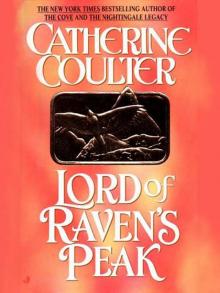 Lord of Raven's Peak
Lord of Raven's Peak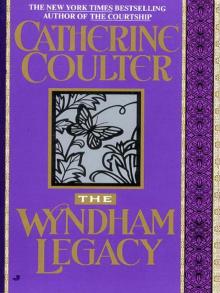 The Wyndham Legacy
The Wyndham Legacy The Strange Visitation at Wolffe Hall
The Strange Visitation at Wolffe Hall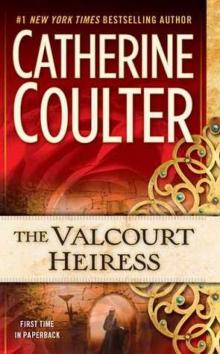 The Valcourt Heiress
The Valcourt Heiress Bombshell
Bombshell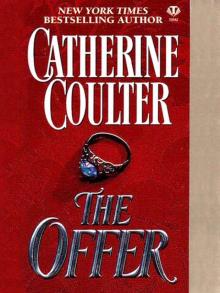 The Offer
The Offer The Edge
The Edge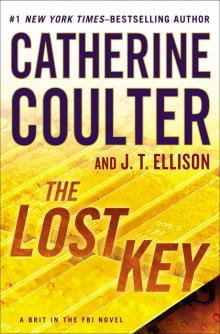 The Lost Key
The Lost Key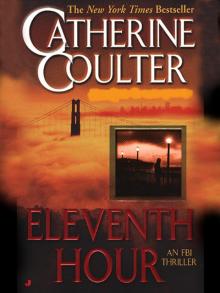 Eleventh Hour
Eleventh Hour Blindside
Blindside Devil's Daughter
Devil's Daughter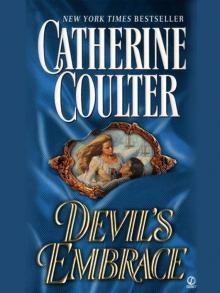 Devil's Embrace
Devil's Embrace Earth Song
Earth Song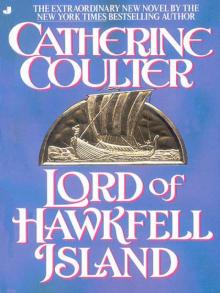 Lord of Hawkfell Island
Lord of Hawkfell Island Calypso Magic
Calypso Magic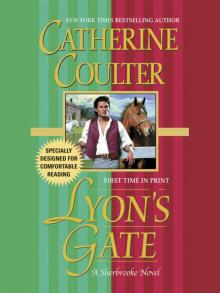 Lyon's Gate
Lyon's Gate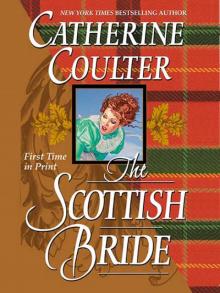 The Scottish Bride
The Scottish Bride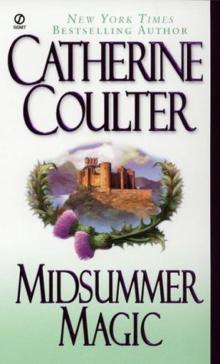 Midsummer Magic
Midsummer Magic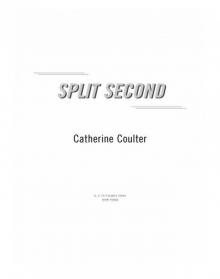 Split Second
Split Second Enigma
Enigma Blowout
Blowout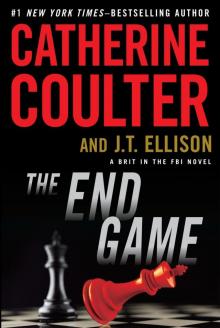 The End Game
The End Game Double Take
Double Take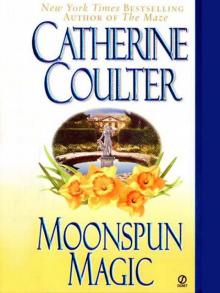 Moonspun Magic
Moonspun Magic The Courtship
The Courtship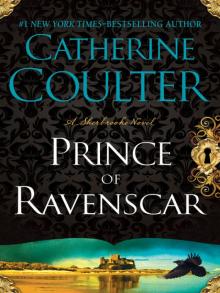 Prince of Ravenscar
Prince of Ravenscar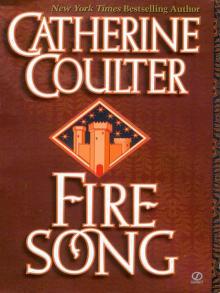 Fire Song
Fire Song Wizard's Daughter
Wizard's Daughter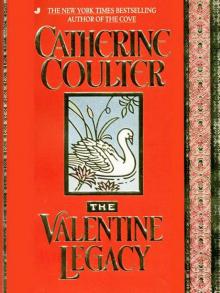 The Valentine Legacy
The Valentine Legacy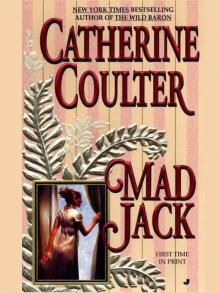 Mad Jack
Mad Jack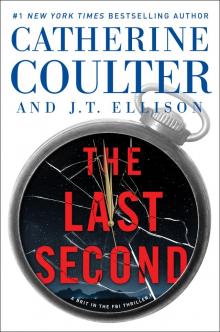 The Last Second
The Last Second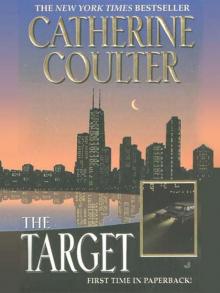 The Target
The Target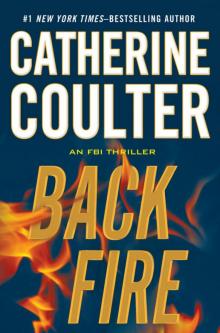 Backfire
Backfire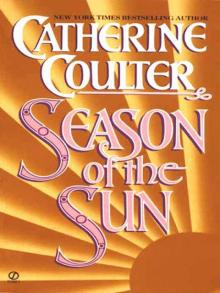 Season of the Sun
Season of the Sun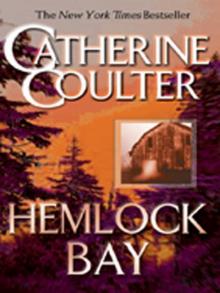 Hemlock Bay
Hemlock Bay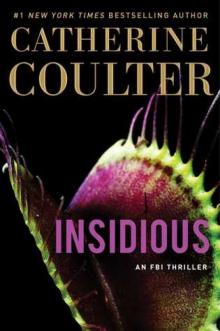 Insidious
Insidious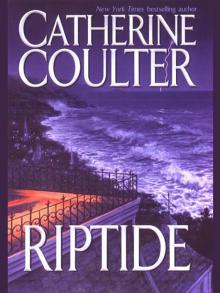 Riptide
Riptide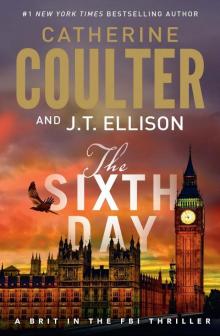 The Sixth Day
The Sixth Day Secret Song
Secret Song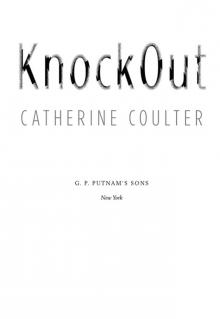 KnockOut
KnockOut Jade Star
Jade Star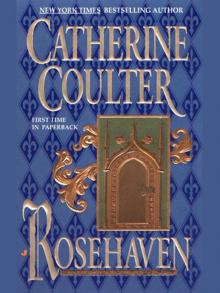 Rosehaven
Rosehaven The Hellion Bride
The Hellion Bride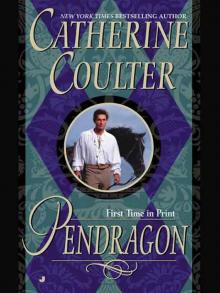 Pendragon
Pendragon Vortex
Vortex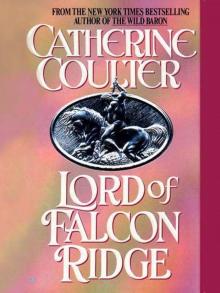 Lord of Falcon Ridge
Lord of Falcon Ridge The Nightingale Legacy
The Nightingale Legacy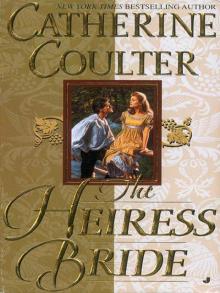 The Heiress Bride
The Heiress Bride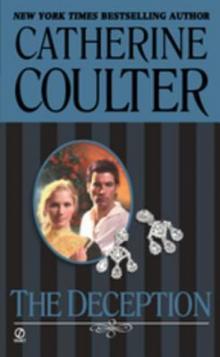 The Deception
The Deception The Maze
The Maze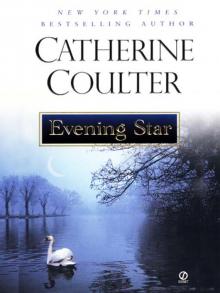 Evening Star
Evening Star Wild Star
Wild Star The Final Cut
The Final Cut Paradox
Paradox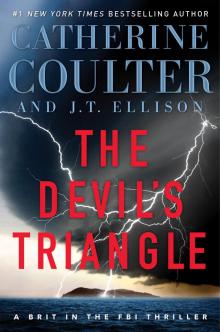 The Devil's Triangle
The Devil's Triangle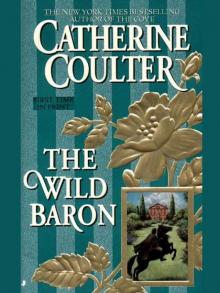 The Wild Baron
The Wild Baron Point Blank
Point Blank Labyrinth
Labyrinth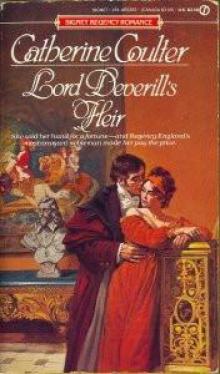 Lord Deverill's Heir
Lord Deverill's Heir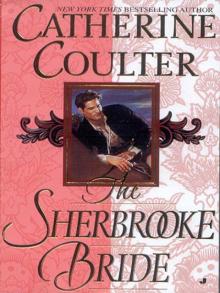 The Sherbrooke Bride
The Sherbrooke Bride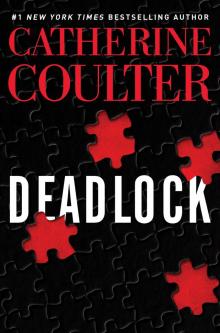 Deadlock
Deadlock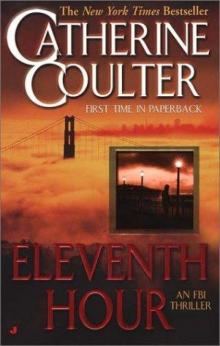 Eleventh Hour f-7
Eleventh Hour f-7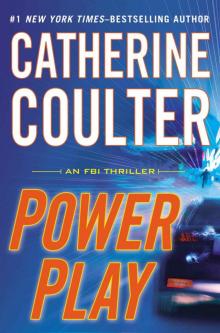 Power Play (An FBI Thriller)
Power Play (An FBI Thriller)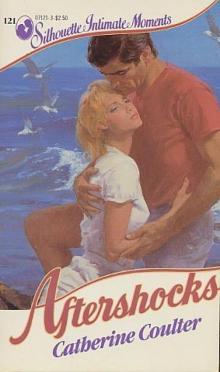 Aftershocks
Aftershocks Sherbrooke Twins tb-8
Sherbrooke Twins tb-8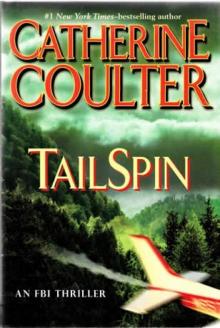 Tail Spin ft-12
Tail Spin ft-12 The FBI Thrillers Collection
The FBI Thrillers Collection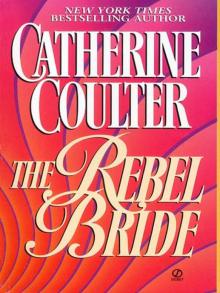 The Rebel Bride
The Rebel Bride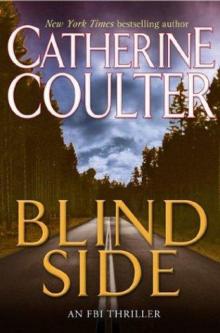 Blindside f-8
Blindside f-8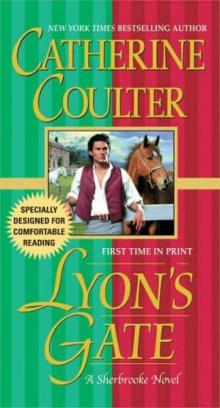 Lyons Gate tb-9
Lyons Gate tb-9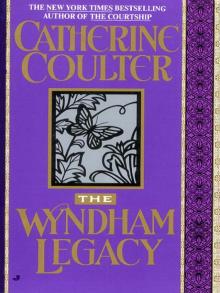 Wyndham Legacy
Wyndham Legacy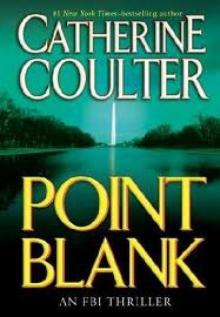 Point Blank f-10
Point Blank f-10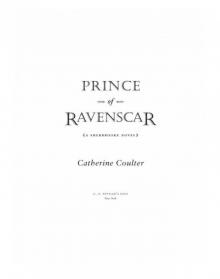 The Prince of Ravenscar
The Prince of Ravenscar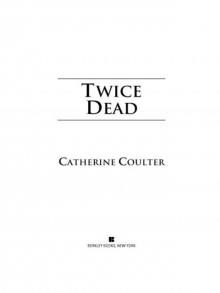 Twice Dead
Twice Dead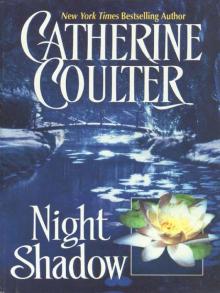 Night Shadow
Night Shadow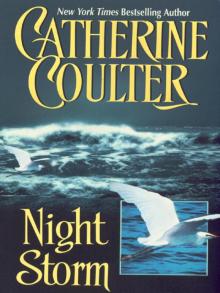 Night Storm
Night Storm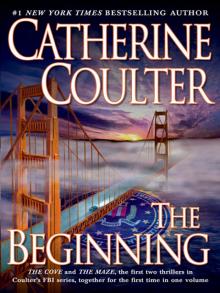 The Beginning
The Beginning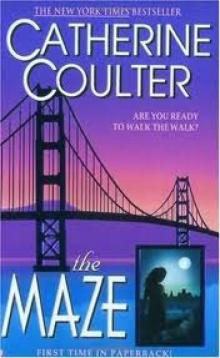 The Maze ft-2
The Maze ft-2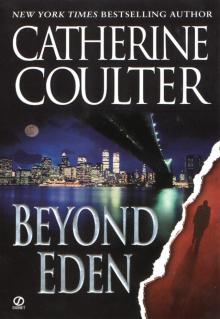 Beyond Eden
Beyond Eden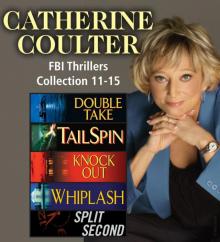 The FBI Thrillers Collection: Vol 11-15
The FBI Thrillers Collection: Vol 11-15 FALSE PRETENSES
FALSE PRETENSES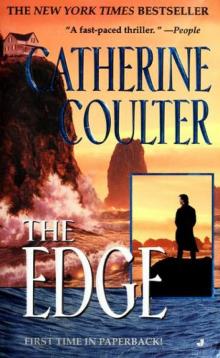 The Edge f-4
The Edge f-4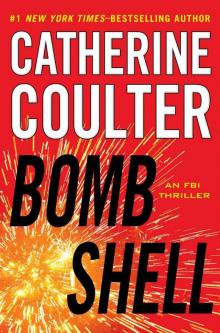 Bombshell (AN FBI THRILLER)
Bombshell (AN FBI THRILLER) The Ancient Spirits of Sedgwick House (Grayson Sherbrooke's Otherworldly Adventures Book 3)
The Ancient Spirits of Sedgwick House (Grayson Sherbrooke's Otherworldly Adventures Book 3)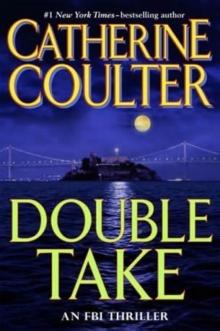 Double Take ft-11
Double Take ft-11 The Heir
The Heir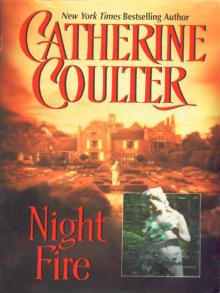 Night Fire
Night Fire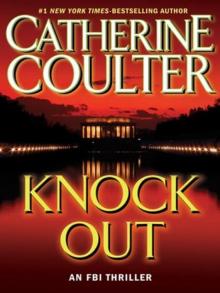 KnockOut ft-13
KnockOut ft-13 Hemlock Bay f-6
Hemlock Bay f-6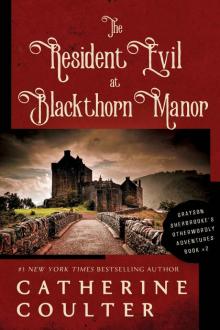 The Resident Evil at Blackthorn Manor (Kindle Single) (Grayson Sherbrooke's Otherworldly Adventures Book 2)
The Resident Evil at Blackthorn Manor (Kindle Single) (Grayson Sherbrooke's Otherworldly Adventures Book 2)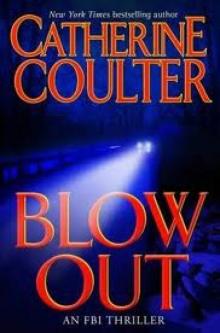 Blowout ft-9
Blowout ft-9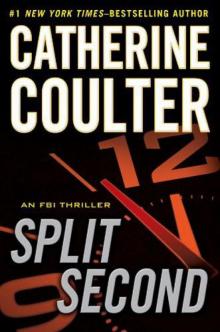 Split Second f-15
Split Second f-15 The Sherbrooke Series Novels 1-5
The Sherbrooke Series Novels 1-5 Impulse
Impulse Paradox (An FBI Thriller Book 22)
Paradox (An FBI Thriller Book 22)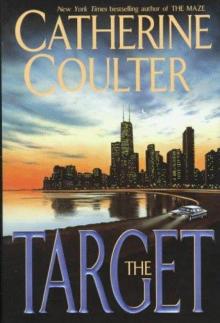 The Target f-3
The Target f-3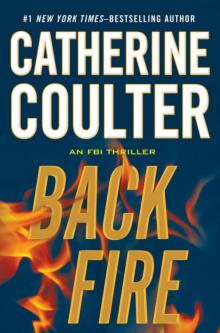 Backfire fst-16
Backfire fst-16 Born To Be Wild
Born To Be Wild Wizards Daughter tb-10
Wizards Daughter tb-10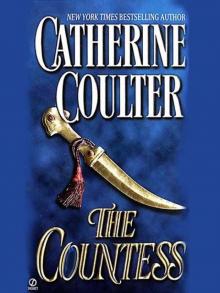 The Countess
The Countess